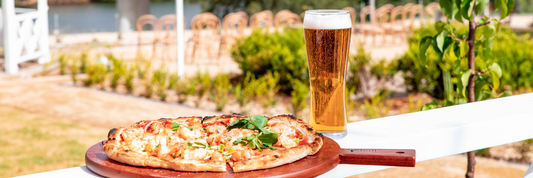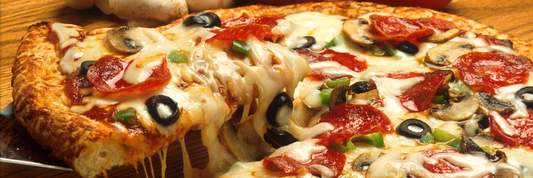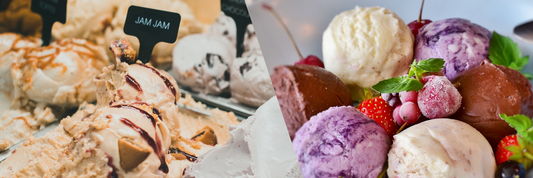Cheese, a beloved delicacy across the globe, comes in countless varieties, from simple everyday options to luxurious, rare finds. The world's most expensive cheeses stand out for their unique production methods, ingredients, and flavors. This article explores what makes these cheeses so costly and provides a guide to serving them properly.
- 15 Best Butter Substitutes Baking That You Should Know
- Types Of Vanilla Products. Which Type Of Vanilla Product You Should Use?
- Alternative To Nut Butter: What Can You Use Instead Of Nut Butter?
Differences Between Natural Cheese vs. Processed Cheese
| Feature | Natural Cheese | Processed Cheese |
|---|---|---|
| Production Methods | Made from pasteurized or raw milk without chemicals or preservatives. | Made from melted natural cheese, emulsifiers, preservatives, and artificial ingredients. |
| Ingredients | Pure milk, no additives. | Saturated vegetable oil, salt, food colorings, sugar, and other ingredients. |
| Packaging | Available in loaf or wheel form. | Typically wrapped in plastic or sold in cans. |
| Flavor & Appearance | Wide range of flavors and textures, with natural variations in appearance. | Uniform flavor, texture, and appearance due to standardized processing. |
Why Is Cheese Expensive?
Cheese becomes expensive due to several factors:
- Rare Ingredients & Price Milk: Unique milk sources such as donkey or rare breeds of cow. Especially, prices fluctuate with natural cheeses made from milk.
- Labor-Intensive Production: Handcrafted processes and extended aging periods.
- Limited Production: Small batches from specific regions or farms.
- Exclusive Flavors: Complex and unique flavor profiles that develop over time.
- Aging: Luxury cheeses are aged to create unique flavors and achieve a balance of sweet, salty, sour, bitter, and umami.
The 5 Most Expensive Cheeses In The World
Pule Cheese - The World's Most Expensive Cheese
One kilogram of Pule cheese requires about 25 liters of donkey milk, which adds to the cheese's high cost. This cheese is well known for its crumbly texture and deep, earthy, slightly tangy flavor.
- Price: Up to $1,300 per kilogram ($590 per pound).
- Features: Made from the milk of Balkan donkeys in Serbia, requiring 25 liters of milk for one kilogram of cheese.
- Unique Factors: Labor-intensive production, rarity of donkey milk, and unique, crumbly texture.
Pull cheese is a rare treat that is regarded as a delicacy because of its special manufacturing method and meticulous preparation. For any cheese lover wishing to sample the most luxurious cheeses on the market, this one is a must-try due to its unique flavor and rarity.

Cabrales
Made from unpasteurized cow, goat, and sheep milk, Cabrales is a classic blue cheese from Spain. Its distinctive flavor is enhanced by the aging process it undergoes in Asturian limestone caves. Many people consider Cabrales to be among the world's strongest blue cheeses.
- Price: Ranges from $50 to $100 per kilogram ($23 to $45 per pound).
- Features: A blue cheese from Spain, aged in limestone caves for unique flavors.
- Unique Factors: Traditional artisanal methods, intense flavor, and limited production.

Époisses De Bourgogne
Époisses de Bourgogne is a French cow's milk cheese that is washed with Marc de Bourgogne, a brandy made from the remnants of pressed grapes. This washing process leaves behind a characteristic orange rind and strong, sometimes overpowering, aroma.
- Price: Between $30 and $60 per kilogram ($14 to $27 per pound).
- Features: A soft, pungent cheese from France, washed in Marc de Bourgogne.
- Unique Factors: Strong aroma, smooth texture, and a protected designation of origin (PDO) status.

White Stilton Gold
With edible gold flakes added, White Stilton Gold is an opulent take on the classic White Stilton cheese. Made in the United Kingdom, this cheese is renowned for its mild flavor and creamy texture, which are enhanced by the incorporation of gold.
- Price: Up to $450 per kilogram ($205 per pound), primarily due to the inclusion of edible gold flakes.
- Features: Infused with edible gold flakes, from England.
- Unique Factors: Luxurious appearance, creamy texture, and rich, sweet flavor.

Caciocavallo Podolico
Caciocavallo Podolico is an Italian cheese, made from the milk of the rare Podolica cattle, which graze on fragrant grasses and herbs in southern Italy. This teardrop-shaped cheese is aged for several years to bring out its full flavor.
- Price: Around $50 to $150 per kilogram ($23 to $68 per pound), depending on its age and quality.
- Features: Made from the milk of Podolica cows in Italy, aged for up to 2 years.
- Unique Factors: Limited milk availability, unique pear shape, and a complex flavor profile.

A Guide to Cheese Etiquette
Serve The Right Amount Of Cheese
Aim for about 1-2 ounces of each cheese per person when serving a variety of cheeses. Adjust based on the number of cheeses and the duration of the event.
Properly Order Your Cheese
Arrange cheeses from mildest to strongest to enhance the tasting experience. This allows the palate to adjust gradually to more intense flavors.
Serve Cheese At The Right Temperature
Cheese should be served at room temperature to fully appreciate its flavors and textures. Remove from the refrigerator about an hour before serving.
- Remove From Fridge: Take the cheese out of the fridge 30 minutes to two hours before serving.
- Avoid Cold Cheese: Cheese kept below 50°F becomes stiff, dry, and loses flavor.
- Room Temperature: Let cheese reach room temperature to enhance its flavor, aroma, and texture.
Pick The Correct Drink Pairing
Pair cheeses with complementary beverages. For example, red wines with hard cheeses, white wines with soft cheeses, and sweet wines with blue cheeses. Beer, cider, and even certain spirits can also pair well.
How to Create The Perfect Luxury Cheese Board
- Select a Variety of Cheeses: Include different types (soft, hard, blue) and milk sources (cow, goat, sheep).
- Add Accompaniments: Fresh and dried fruits, nuts, honey, and artisanal breads.
- Include Condiments: Jams, chutneys, and mustards can enhance the flavors.
- Use Proper Tools: Provide cheese knives, spreaders, and a sturdy board.
- Presentation Matters: Arrange cheeses and accompaniments attractively for visual appeal.
Conclusion
The world's most expensive cheeses are more than just food; they are a testament to the art of cheese-making, reflecting tradition, craftsmanship, and luxury. Whether you're a seasoned connoisseur or a curious foodie, exploring these cheeses can be a delightful and enriching experience. Properly serving and pairing these exquisite cheeses will ensure that you and your guests can fully appreciate their unique qualities.
Related Articles:







